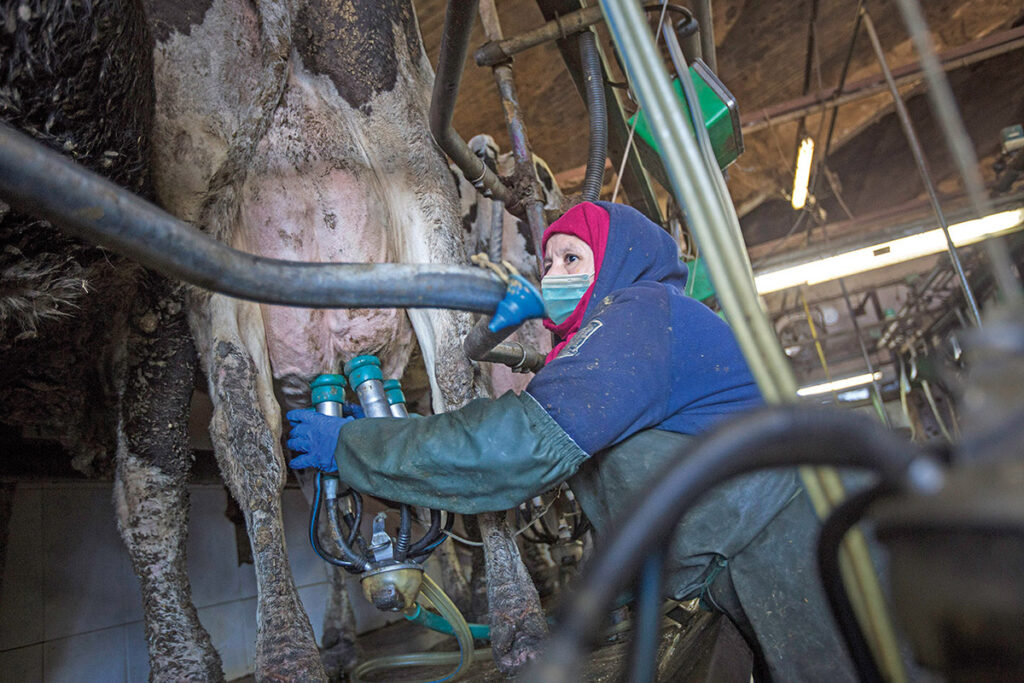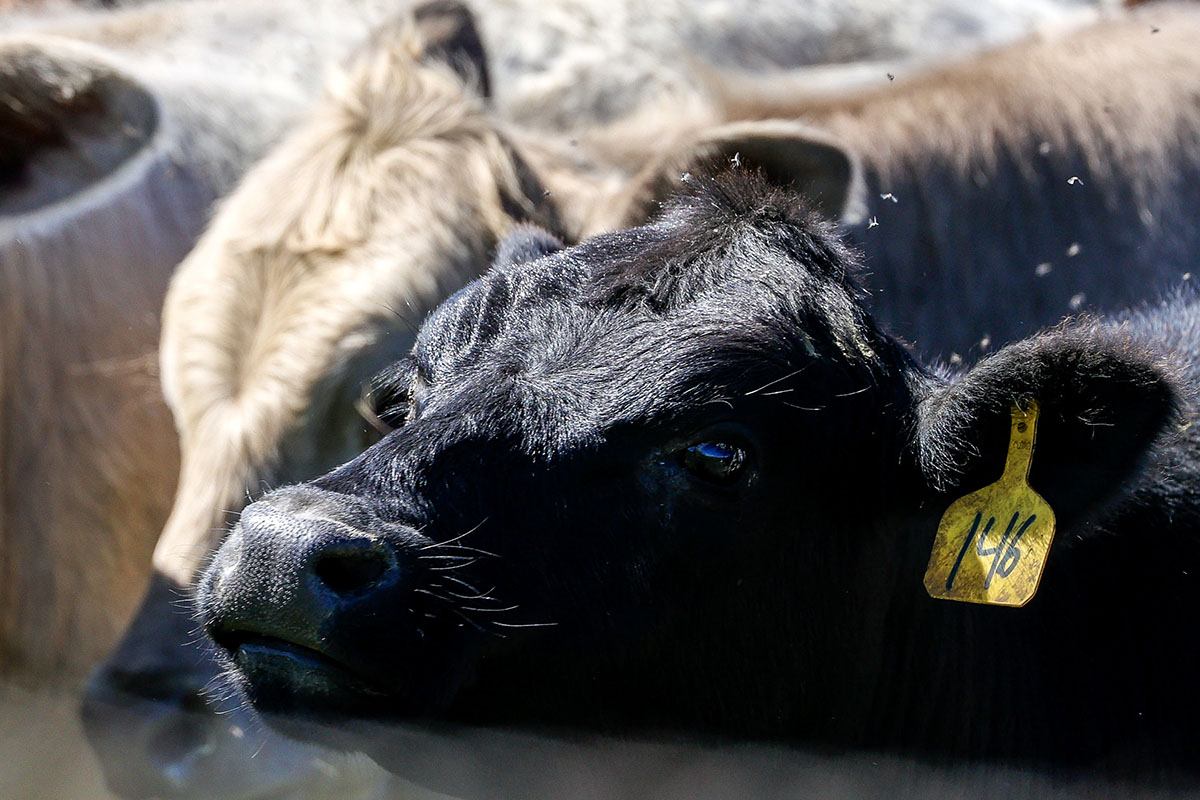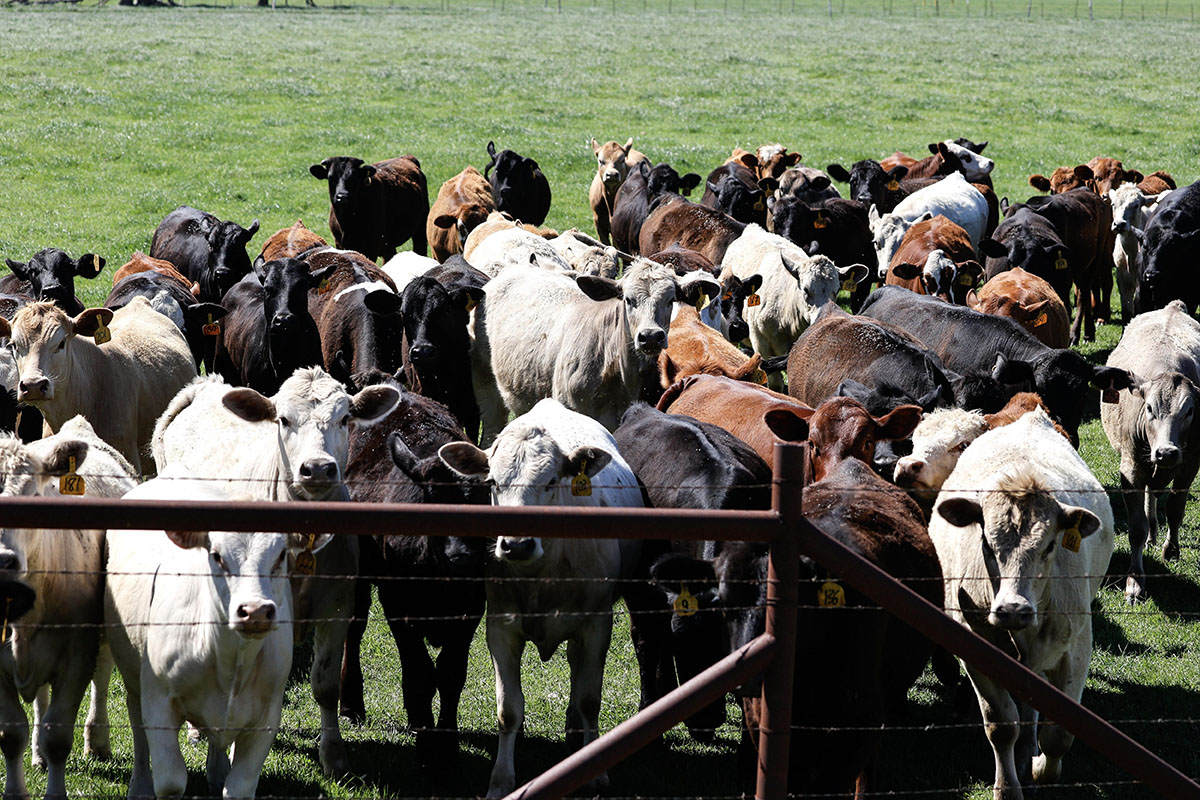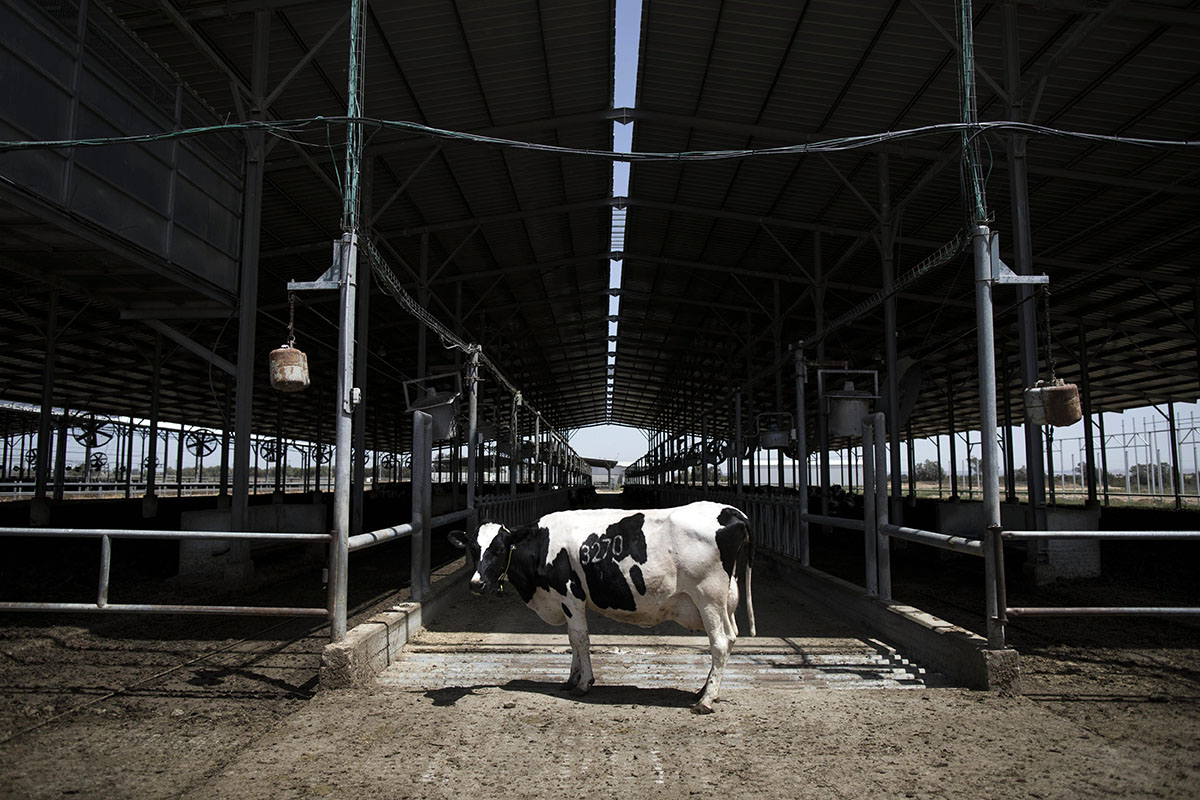
IN COLORADO | Dairy workers must follow safety protocols. (Photo/EFE)
PROTECTING WORKERS TO PREVENT HUMAN CONTAGION
Aura Travieso / Newsroom El Comercio de Colorado
Haga click aquí para leer la versión en español
The dairy industry in Colorado is taking proactive measures to prevent the spread of avian influenza.
Avian influenza, technically known as Highly Pathogenic Avian Influenza (HPAI), has raised alarms in various agricultural industries, including dairy, in Colorado. While avian influenza is commonly associated with birds, its spread through cows has become a recent concern, especially following the confirmation of two cases in dairy workers in the United States. These cases occurred in Texas and Michigan, highlighting the need for strict preventive measures in the dairy industry.
Colorado boasts a robust and significant dairy industry. According to the latest data, there are approximately 120 dairies in the state, primarily concentrated in northern Colorado. This region not only hosts most of the dairies but also employs many Hispanic workers, who make up most of the workforce in this vital industry. The importance of these dairies cannot be underestimated, as they represent a crucial part of Colorado’s agricultural economy.

Cows with Avian Influenza in Colorado
No cases of the disease have been detected in dairy workers in Colorado. However, HPAI has recently been detected in dairy cattle in the state. “At this time, there are four confirmed detections of HPAI in Colorado dairies. All affected dairies are in northeastern Colorado. The dairies under quarantine, which restricts the movement of lactating dairy cows out of the facilities,” revealed Maggie Baldwin, State Veterinarian of Colorado, to El Comercio de Colorado.
Baldwin explains, “In affected herds, between 5 and 10 percent of lactating dairy cows show clinical signs consistent with HPAI. These cows are removed from the milking group, placed in hospital pens, and receive supportive care until they clinically recover and can return to the milking group,” explains Maggie Baldwin, State Veterinarian of Colorado. She emphasizes the need to closely monitor the health of birds and cattle to prevent the spread of the virus.

Pasteurized Milk is Safe to Consume
The transmission of avian influenza to humans is a complex process that begins with birds, especially wild and migratory ones. These birds can carry the virus without showing symptoms and spread it through their feces and secretions. When cows in dairies meet the virus, transmission to workers can occur through direct handling of the animals or their products.
“Constant surveillance and the implementation of biosecurity protocols are essential to protect both animals and workers,” affirms Baldwin. She also emphasized that the commercial milk supply remains safe thanks to federal animal health requirements and pasteurization. “There is no concern about the safety of the commercial milk supply, and milk does not pose a health risk to consumers,” she added.

Protection Measures
Hunter Knapp urges workers to protect themselves to avoid infection. “They should wear protective clothing such as coveralls, gloves, masks, or face shields, and goggles due to potential contact with manure or milk. They should wash their hands with water, soap, or alcohol-based sanitizer throughout the day, especially before eating, drinking, smoking, and before going home. It’s important to pay attention to disinfecting areas that have been in contact with the cows,” said the spokesperson for Project Protect Food Systems Workers.
Additionally, the general population should take precautions when consuming dairy products. Andrés Henao Martínez, a public health expert, recommends avoiding raw milk and opting for pasteurized products. “Pasteurization is an effective process that kills potentially harmful pathogens in dairy products, significantly reducing the risk of infections,” explains Henao Martínez.
You may also like:
Golden Gate Canyon State Park to Host Hispanic Athletes in the Second Edition of LUNA






otras noticias
Antisemitism Strikes Colorado’s Jewish Community
Informal hot dog sales raise concerns in Denver
16th Street fills with free events and community activities